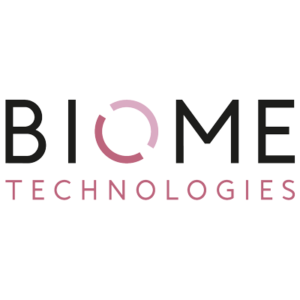Consumers are becoming increasingly conscious of their environmental footprint, and brands that embrace sustainability are reaping the rewards. Nearly half of global consumers are more likely to buy from businesses committed to eco-friendly practices, and that figure is only growing. For food brands, this extends beyond ethical sourcing to include the packaging itself. Sustainable packaging is no longer a niche preference; it is an expectation, with 82% of consumers, particularly Gen Z, willing to pay more for products that prioritise sustainability.
As the demand for sustainable food packaging surges, forward-thinking brands are exploring innovative solutions that reduce waste, lower carbon footprints, and enhance their brand image. The shift towards eco-friendly packaging materials is reshaping the industry, offering companies a competitive edge while aligning with consumer values.
Eco-friendly packaging solutions are crafted from recyclable, compostable, or biodegradable materials, including bioplastics, plant-based extracts, paper, and cardboard. These materials are selected based on product needs and sustainability goals, with the overarching objective of minimising waste and environmental impact throughout the packaging lifecycle.
Bioplastics, such as PLA (polylactic acid) and PHA (polyhydroxyalkanoates), are leading the way in sustainable packaging. Derived from renewable resources like corn starch and plant-based materials, PLA requires 65% less energy to produce than traditional plastics and generates 68% fewer greenhouse gas emissions. PHA, widely used in coffee capsules, straws, and films, breaks down into water and carbon dioxide within 20 to 45 days, a stark contrast to the centuries-long degradation of conventional plastics.
Plant-based and fibre-based materials are also gaining momentum. Rice paper, seaweed, jute, cotton, bamboo, and hemp provide viable alternatives to plastic packaging. Fresh produce can be stored in mesh bags, while seaweed and rice paper are being adopted for pouches and wraps, significantly reducing reliance on single-use plastics. Some of these materials are even edible, reinforcing their sustainability credentials.
Reusable packaging systems, including glass jars, metal tins, and bulk bins, are becoming a staple in zero-waste stores and progressive supermarkets. These systems encourage consumers to cut down on packaging waste by refilling containers, reducing reliance on disposable alternatives.
Beyond environmental benefits, sustainable packaging enhances brand reputation. Consumers, especially younger demographics, are aligning their purchasing decisions with brands that demonstrate environmental responsibility. Companies that integrate sustainable packaging into their operations are perceived as ethical, forward-thinking, and trustworthy. This shift not only fosters customer loyalty but also differentiates brands in an increasingly competitive market.
Sustainable packaging also conserves resources. Lightweight designs and the use of recycled materials lower production and transportation costs, reducing energy consumption and overall waste. This approach benefits both the environment and a company’s bottom line, making sustainability a strategic investment rather than just a regulatory necessity.
The future of food packaging is sustainable, and brands that embrace this transition are setting themselves apart. By investing in eco-friendly solutions, companies can meet consumer expectations, strengthen their brand identity, and drive long-term success in a world where sustainability is no longer optional—it is essential.
Biome Technologies plc (LON:BIOM) is a growth oriented, commercially driven technology group. The Group’s primary activity is the development of its fast growing business in bioplastics. The Group comprises two divisions: Biome Bioplastics and Stanelco RF Technologies.


